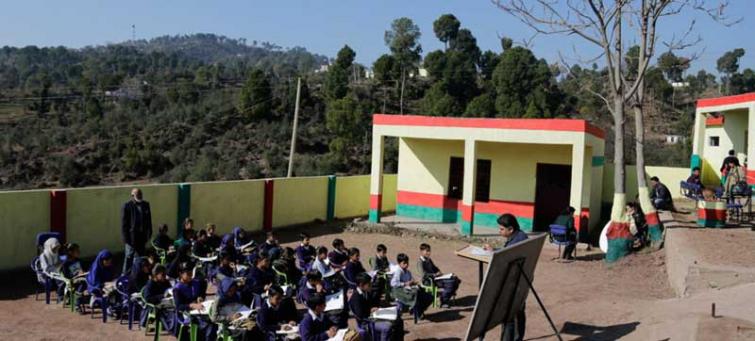
Guterres appeals for ‘maximum restraint’ over Jammu and Kashmir as tensions rise
New York, Aug 9 (IBNS): The UN Secretary-General António Guterres appealed for ‘maximum restraint’ over the territory of Jammu and Kashmir on Thursday, which has been disputed by India and Pakistan, since the end of British rule in the late 1940s.
The BJP party-led Indian Government announced on Monday that it was revoking the special status of the area of Kashmir that it administers, putting the region under tighter central Government control. Pakistan argues that the removal of the territory’s special status, which has a majority-Muslim population, violates international law, according to news reports.
The UN has long maintained an institutional presence in the contested area between India and Pakistan. According to the Security Council mandate given in resolution 307 of 1971, the UN Military Observer Group in India and Pakistan (UNMOGIP) observes and reports on ceasefire violations along and across the Line of Control and the working boundary between the South Asian neighbours in Jammu and Kashmir, as well as reports developments that could lead to ceasefire violations.
The Secretary-General has been following the situation in Jammu and Kashmir with concern and makes an appeal for maximum restraint, said UN Spokesperson.
Guterres said in a statement issued by his Spokesperson, that he had been following the situation in Jammu and Kashmir, “with concern”, adding “the position of the United Nations on this region is governed by the Charter of the United Nations and applicable Security Council resolutions.”
"The Secretary-General also recalls the 1972 Agreement on bilateral relations between India and Pakistan, also known as the Simla Agreement”, the statement continued, “which states that the final status of Jammu and Kashmir is to be settled by peaceful means”, in accordance with the UN Charter.
The UN chief said he was “concerned over reports of restrictions on the Indian-side of Kashmir, which could exacerbate the human rights situation in the region”, and called on “all parties to refrain from taking steps that could affect the status of Jammu and Kashmir.”
India and Pakistan both administer parts of Kashmir, but claim the territory in its entirety. They have fought several wars over the region since the partition of India in 1947, and this February, a terrorist attack which resulted in the deaths of 40 Indian security personnel took place in the Pulwama district of Jammu and Kashmir, the worst attack against Indian forces in decades. A Pakistani-based militant group later claimed responsibility, leading to a retaliatory air strike by the Indian armed forces.
Just a day after the Indian government took major steps in Kashmir, Pakistan on Wednesday expelled Indian High Commissioner Ajay Bisaria.
Pakistan also decided to downgrade all bilateral trade with India.
India have responded to the development urging Pakistan to reconsider its decision of downgrading bilateral trade and also accused its neighbour of creating an "alarmist" picture of their relation.
Vowing to rid Jammu and Kashmir of terrorism and set in motion a rapid development process, Prime Minister Narendra Modi on Thursday addressing the nation on the scrapping of Article 370 from Jammu and Kashmir said the people of the former state will have a government chosen by them with a Chief Minister and cabinet like before and it will not be a Union Territory forever.
Addressing the nation on the All India Radio and other government media platforms, the Prime Minister said the government has taken a historic decision and with the revoking of Article 370, the hurdle to development will now go.
Modi said for long it seemed Article 370 seemed will never change. "It was causing harm to our generations. No one could ever explain how it had helped or improved the lives of people of Jammu and Kashmir," he added.
"About 42,000 innocent people had died in the past decades. Jammu and Kashmir and Ladakh could never develop the way it should have been. Now things will be improved and their future will be protected," he said.
UNICEF/Syed Altaf Ahmad
Support Our Journalism
We cannot do without you.. your contribution supports unbiased journalism
IBNS is not driven by any ism- not wokeism, not racism, not skewed secularism, not hyper right-wing or left liberal ideals, nor by any hardline religious beliefs or hyper nationalism. We want to serve you good old objective news, as they are. We do not judge or preach. We let people decide for themselves. We only try to present factual and well-sourced news.







